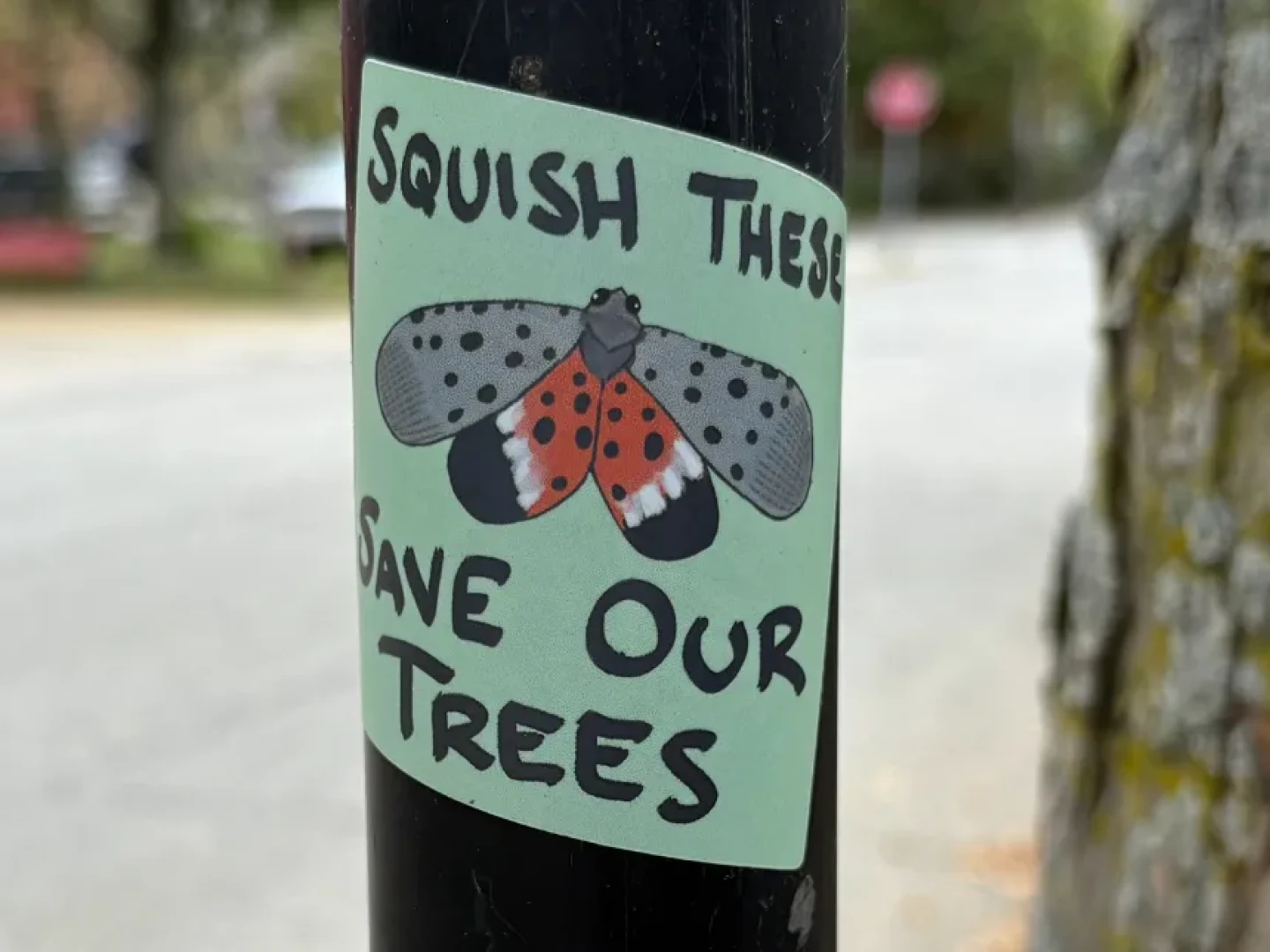Megan Hall: Welcome to Possibly, where we take on huge problems like the future of our planet and break them down into small questions with unexpected answers. I’m Megan Hall.
You may have seen spotted lanternflies flying around Rhode Island or heard about them on the news. Today, we’re looking into the question of what we should do when we see them.
We had Andrea Li and Hamid Torabzadeh from our Possibly Team look into this.
Andrea Li: Hi, Megan!
Hamid Torabzadeh: Hello!
Megan Hall: Before we talk about what to do with lanternflies, can you just describe what they look like for people who haven’t seen them?
Andrea Li: Yes, they’re actually kind of pretty. When their wings are closed, they just look like grey insects dotted with black spots. But when they open their wings, they reveal a red, black and white pattern underneath.
Megan Hall: Yeah, I’ve been seeing a lot of these spotted lanternflies recently. I think I’m supposed to kill them? But why?
Andrea Li: To find out, I talked to Cynthia Kwolek. She works for the Rhode Island Department of Environmental Management in the Department of Agriculture.
Cynthia Kwolek: Spotted lantern flies are an invasive plant hopper from China. They feed from the sap on several types of trees and plants. They decrease the yield of different fruits. So that’s why we are concerned here. We’re trying to protect our vineyards.
Hamid Torabzadeh: According to Cynthia, spotted lanternflies are popping up all over the state.
Cynthia Kwolek: We started seeing spotted lantern fly populations show up in Rhode Island in 2021. And then we saw another population spring up in 2022 in Smithfield, Rhode Island. And since then, it has spread east into North Providence, Providence and East Providence, and then into Pawtucket and Central Falls, Cumberland, Lincoln.
Megan Hall: So what should we do if we see them around?
Andrea Li: This question is actually very relevant for me because a spotted lanternfly flew onto my face the other day. I asked Cynthia and she said,
Cynthia Kwolek: I know this will sound gruesome, but the best thing that the typical citizen could do is just squish them. In addition to squishing them, just being aware to not move them out of this area.
Megan Hall: Not move them?
Andrea Li: That’s because we want to make sure they don’t find their way into farms.
Megan Hall: Well, what about pesticides? Should I use those if I see a spotted lanternfly?
Hamid Torabzadeh: Cynthia says only if you hire an expert.
Megan Hall: Got it. Then, what does the future look like for spotted lanternflies in the U.S.?
Hamid Torabzadeh: If you’re worried about protecting agriculture, it’s not looking too good. But if you are a spotted lanternfly, you have a very bright future ahead.
Cynthia Kwolek: Unfortunately, I think that spotted lanternfly is going to be something we’re going to have to live with long term. I don’t think that it’s a pest that will be able to eradicate entirely.
Andrea Li: But, there are some biological forces that may keep the lanternflies in check. Look at Pennsylvania, for example. There,
Cynthia Kwolek: Not only is there a native pathogenic fungus that seems to attack nymphs, there’s also predators that are realizing, like this is not a poisonous food, that they can eat it as a good food source. And then the other aspect that we have hoped for is some sort of biological control, so USDA and several cooperators are looking into the release of a parasitic wasp that could potentially keep the population in check.
Hamid Torabzadeh: But there’s still research to be done before releasing this wasp.
Andrea Li: For now, local environmental agencies are asking people to report spotted lanternfly sightings.
Hamid Torabzadeh:Here in Rhode Island, you can do that on the Department of Environmental Management’s website, unless you live in Providence or Kent counties. DEM already knows the lantern flies are there.
Andrea Li: And of course. If you see them, squash them.
Megan Hall: Great! Thanks, Andrea and Hamid.
That’s it for today. You can find more information, or ask a question about the way your choices affect our planet, at askpossibly.org. You can also subscribe to Possibly wherever you get your podcasts or follow us on Instagram, Facebook, LinkedIn, or Bluesky at “askpossibly”
Possibly is a co-production of Brown University’s Institute for Environment and Society, Brown’s Climate Solutions Initiative, and Ocean State Media.







